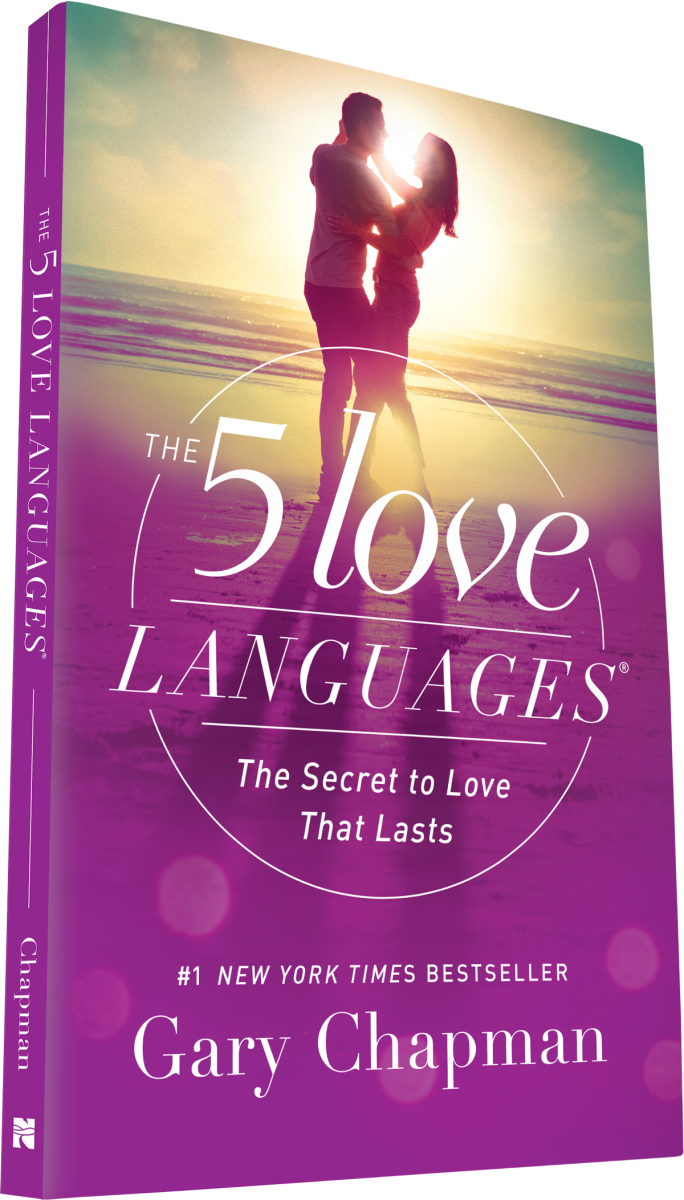
To be in love is joyful. It’s pure bliss, a kind of gasping happiness that tickles the tummy. One that perfumes the brain, or seizes the soul — if it feels like love, then it is love alright.
This is how Gary Chapman, who has a doctorate in philosophy, talks about love in his book ‘The Five Love Languages: The Secret To Love That Lasts.’ He says falling in love is euphoric; he compares it to the “anteroom of Heaven,” better known as the waiting room to Heaven. So, why are couples struggling after the prominent “honeymoon phase” experience fades?
The fact is, Chapman explains, that most couples do not speak the same love languages. And I see validity in his points.
The premise of his book is how to make love succeed as it evolves into a more comfortable intimacy—a marriage or long-term relationship. Moreover, this book is not only exclusive to people in relationships, but it’s relevant for singles, too. And here’s why: everyone should know how they communicate love.
This is known as your main love language.
Chapman’s argument is effective because he interrogates the different ways individuals view, express and receive love.
Chapman states that there are five primary love languages: words of affirmation, acts of service, receiving gifts, quality time and physical touch. This is important, as understanding the love languages, specifically the ones that affect you, is the elixir to a happy and healthy love life.
Further, establishing the main language in which your partner seeks love, such as through quality time or physical touch, means recognizing your personal role in increasing your partner’s happiness.
When I first picked up this book, I read its summary and immediately desired to know the five love languages. I was curious about this idea; one where breaking down love in a series of colloquial words could mean understanding the identity of love entirely.
Let’s be honest, love is not so simple. However, developing an understanding of how we view and respond to certain gestures of love has a long-lasting significance.
Maybe, you think this book is worthless. You hate the idea of love, and you’re a downright romance cynic altogether. I won’t even deny the banality centered around this topic. But the main principles of this book are worth noting because the epitome of it explains how people take vastly different approaches to love.
Coinciding with Chapman’s book, a quiz at 5lovelanguages.com is designed to help someone learn which love languages they speak. If a person’s primary love language is words of affirmation, essentially they seek kind and encouraging words to stimulate motivation.
For example, a boyfriend tells his girlfriend that she’s a great writer. His remark lingers in her mind long after; these words truly have a positive impact. Only then does she see the value in her writing. She goes on to submit her work to various magazines for publication.
Meanwhile, a person whose primary language is quality time means they value good conversation and focused attention from their partner.
Now, love languages can look quite different for contrasting individuals. Perhaps, a person values a partner who gives gifts. Let’s pursue this further. Imagine a woman bought her girlfriend an expensive watch. Imagine the girlfriend’s main love language is receiving gifts. More warmth and intimacy would resonate with the girlfriend when she looks down at the watch then it would if she went for a picnic with her girlfriend.
Many may read this and think it’s materialistic, but gift-giving is a visual symbol of compassion more than it’s consumerist. In fact, I’d argue it’s realistic. This is the way the world operates.
Some individuals value gestures, meanwhile, others are looking for physical touch. People vary with likes and dislikes, and for lack of a better metaphor, everyone needs different fuel to fill their happiness gas tank.
Chapman says couples struggle simply because they do not understand their partner’s needs. The argument here is that communicating romance based on your needs can contribute to a healthy relationship, but what if this doesn’t feel like love for you?
Of course, no one likes to be forced to do anything they don’t want to do. Love should be given freely and it shouldn’t feel like a chore. Saying relationships are all work is an unhealthy perspective. But if you do choose to love someone, you do because they make you happy.
Choosing to love someone means putting faith and effort into loving them. It is for you to decide whether loving them is worthwhile. Does the blissful happiness of love outweigh all the bad?
I believe there is a secret to this book’s premise. It is taking Dr. Chapman’s rationale and using your imagination. What’s the worst it could inspire? I say read this book, learn it’s content and then make an informed decision about speaking your love and its truth.
_Edited by George Frey | [email protected]_